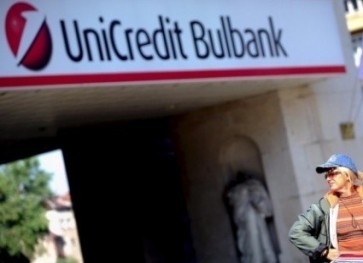UNICREDIT: BULGARIA ECONOMY GROWTH SET FOR SLOW DOWN
Bulgaria's fledgling economic expansion will slow down over the next few months due to difficulties in recovery from the recession and gloomy global prospects, analysts from the Italian UniCredit bank, which owns the Bulgarian Bulbank, forecast.
The Bulgarian economy is expected to grow by a real 3.3% next year from 2.8% a year earlier, the bank's quarterly report on the countries from Central and Eastern Europe, published on Monday, said.
The analysts expect this growth, combined with lower inflation levels, to boost the recovery of the household sector in 2012.
Inflation however is likely to remain one of the biggest problems for Bulgaria in 2011 despite the positive forecasts for the second half of the year.
Inflation will rise to an annual 6% in June and July because of a spike in food and fuel prices, only to ease down to 4% by the end of the year, the report says.
The more efficient absorption of EU funds and solving the crisis in Greece, which currently restricts the capital flows to the whole Balkan region, will be the factors that will make Bulgaria's economy more attractive for investments in 2012, the report says.
Bulgaria, which is trying to reduce its fiscal deficit and avoid putting pressure on its currency, pegged to the euro, will cut the budget deficit below 3% as early as this year, according to Unicredit report.
The government in Sofia plans to halve the budget deficit to 2.5%.
The Bulgarian economy expanded by 3,4% in the first quarter of the year on an annual basis, revised data of the statistics office showed at the beginning of June, well above the flash data published a month ago.
On quarterly basis, the emerging economy expanded 0.6% from January through March.
According to flash data of the statistics office from the middle of May the Bulgarianeconomy expanded by 2.5% in the first quarter on an annual basis.
The government expects an export-led recovery to push up growth to 3.6% this year.






